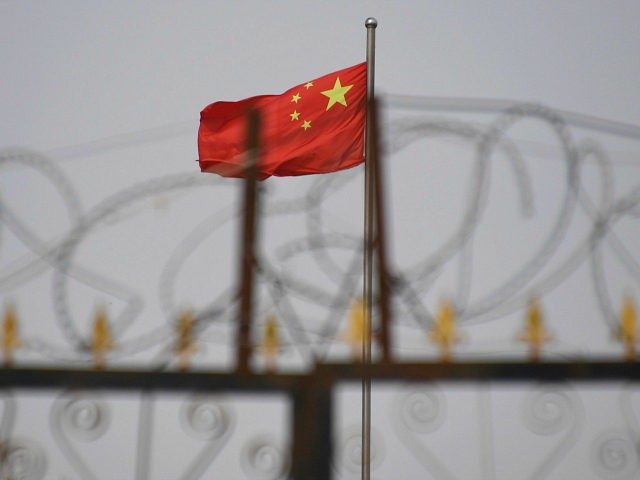The non-governmental organization Human Rights Watch published a plea to leaders of African countries Monday to stop supporting China’s attempts to avoid accountability for the ongoing genocide of Uyghur and other Turkic Muslims populations in Xinjiang.
The Chinese Communist Party faces a litany of accusations — based on extensive research, eyewitness testimonies, surveillance footage, and other hard evidence — of crimes that amount to genocide against minority ethnic populations in Xinjiang, its westernmost and largest province. Among the most horrific realities is the construction of hundreds of concentration camps believed to house as many as 3 million people at their peak. Survivors of the camps have testified to indoctrination, beatings, forced sterilization, “nightly” gang rape, and medical practices consistent with live organ harvesting. A study by international experts published this month concluded China is guilty of every element in the international legal definition of genocide.
Outside of the camps, extensive evidence suggests China has enslaved hundreds of thousands of Xinjiang residents in its cotton trade, destroyed heritage sites and cemeteries, and implemented a pervasive, high-tech surveillance system that tracks the activities of every non-Han person in the region.
Human Rights Watch Africa Advocacy Director Carine Kanez Nantulya noted in a statement published Monday that the governments of Burkina Faso, the Republic of Congo, and Sudan recently allowed their ambassadors to China to partake in a propaganda event in which the Communist Party claimed to have brought peace and stability to Xinjiang through its repression of the local Uyghur population, condemning human rights activists who have spoken out against abuses there.
“They extolled Chinese authorities’ success in raising the standard of living in the region and dismissed Western criticism of China as driven by ulterior motives,” Nantulya wrote. “There is little evidence that the ambassadors discussed Beijing’s strategy of mass arbitrary detentions, which have seen around one million Turkic Muslims detained simply based on their identity.”
“The event might be routine diplomacy, but African governments’ willingness to remain silent on Beijing’s suppression of rights has real-world consequences,” the expert continued. “Some have helped defend China’s Xinjiang policies at the United Nations Human Rights Council, where Burkina Faso and Sudan are members, while introducing a resolution to bring systemic racism in the US and around the world under international scrutiny.”
Nantulya urged African politicians to “try seeing Xinjiang through the eyes of the Turkic Muslim population that has endured torture, enforced disappearances and cultural persecution,” accusing them of allowing “economic benefits gained from China” to cloud their public morals.
Nantulya notably concluded without referring to the campaign to eliminate the Uyghurs and other Turkic people of Xinjiang as a “genocide.” While campaigning for the human rights of Uyghurs for years, Human Rights Watch has avoided the term despite several governments, including that of the United States, ruling the coordinated persecution a “genocide.”
Human Rights Watch most recently expressed frustration at African nations for their relationship with China during the wave of racist events against black people in Guangzhou, southern China, last year. Guangzhou is home to one of China’s largest African ex-pat communities, which became the target of extreme racism at the height of the Chinese coronavirus pandemic in April last year.
“We have pictures showing how some people were locked down in their apartments without food. You can’t go out on the street if you are black,” a spokeswoman for an association of Nigerians living in China told Voice of America at the time. Videos of Africans sleeping in the streets became prominent on social media after landlords evicted them and hotels refused to house them, despite the fact that they were paying their rents and could afford apartments and hotel rooms. Local restaurants, including McDonald’s, placed signs on their windows stating they would not serve black-skinned people.
The Chinese government responded to the international outcry over the situation in Guangzhou by stating that the accusations were “absurd” and Africans needed to “readjust their way of thinking.”
“Some African governments have expressed disillusion with the Chinese regime, but many have deep financial ties to Beijing, compromising their stances,” Human Rights Watch observed at the time, noting that many African countries have become deeply indebted through the Belt and Road Initiative (BRI), a Chinese global infrastructure takeover project.
“China has invested billions into a plan known as the “Belt and Road Initiative” (BRI), which it debuted as a plan to reconstruct the ancient Silk Road from western Europe to Beijing,” Human Rights Watch noted. “Instead, it has invested in building expensive infrastructure projects in Africa, paid for through predatory loans offered to the local governments.”
“African governments together should unequivocally call on the Chinese government to cease all discrimination against Africans in China, and carry out prompt and transparent investigations to hold to account all those responsible for discriminatory practices,” Nantulya suggested then.
A year later, little evidence exists that the Chinese Communist Party suffered any consequences as a result of the racist policies implemented in Guangzhou.

COMMENTS
Please let us know if you're having issues with commenting.